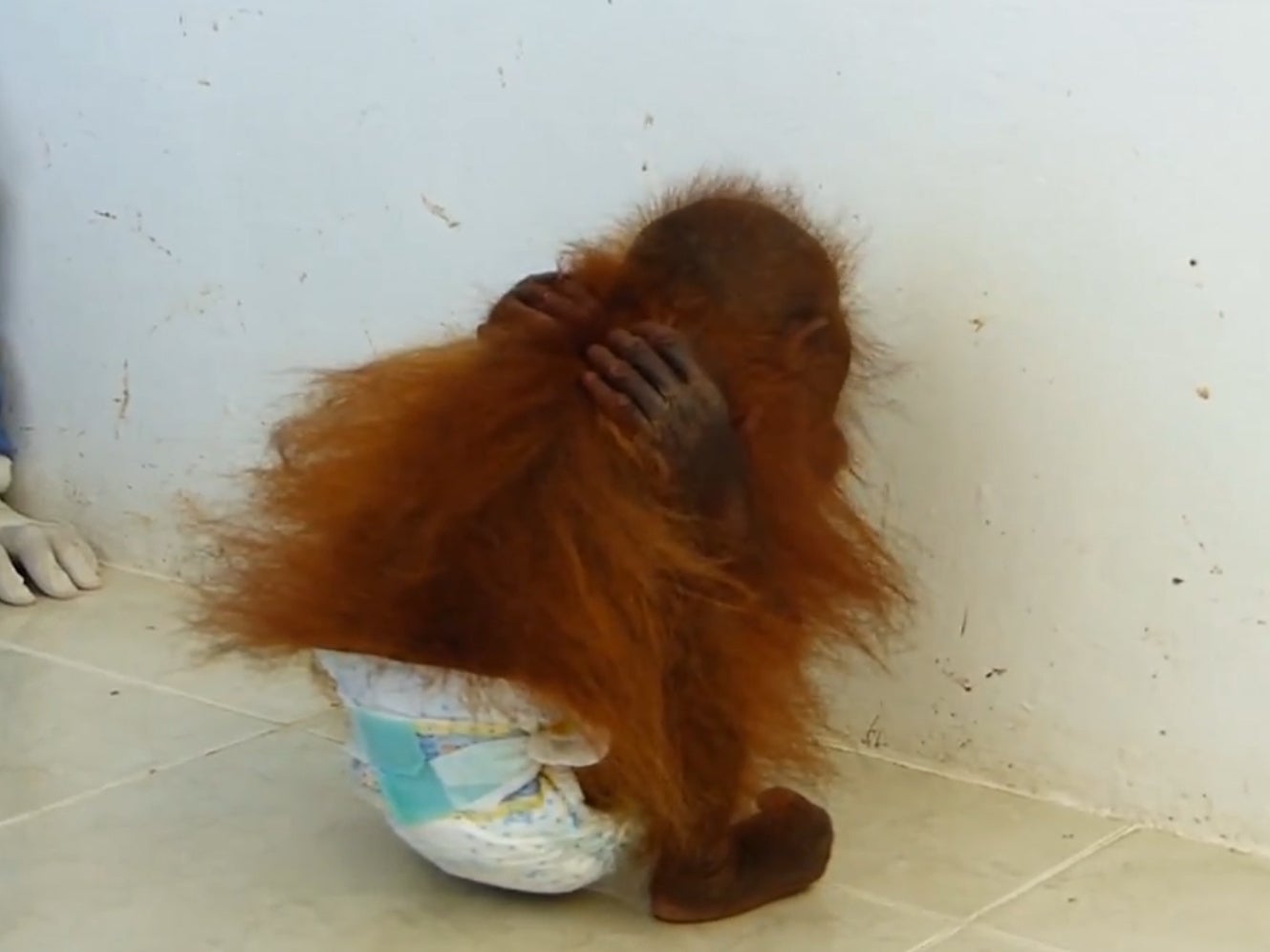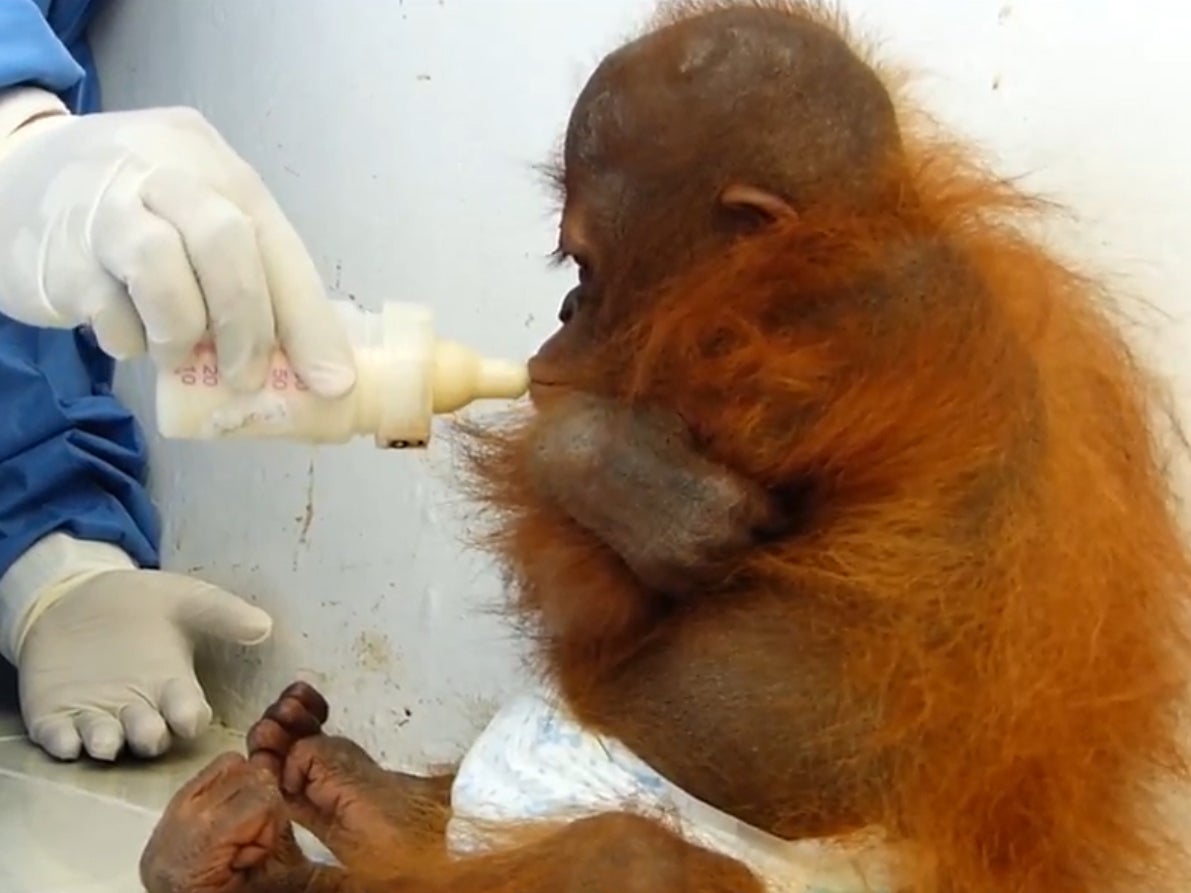Video shows baby orangutan traumatised by years in captivity
Warning – video contains distressing images.
Your support helps us to tell the story
From reproductive rights to climate change to Big Tech, The Independent is on the ground when the story is developing. Whether it's investigating the financials of Elon Musk's pro-Trump PAC or producing our latest documentary, 'The A Word', which shines a light on the American women fighting for reproductive rights, we know how important it is to parse out the facts from the messaging.
At such a critical moment in US history, we need reporters on the ground. Your donation allows us to keep sending journalists to speak to both sides of the story.
The Independent is trusted by Americans across the entire political spectrum. And unlike many other quality news outlets, we choose not to lock Americans out of our reporting and analysis with paywalls. We believe quality journalism should be available to everyone, paid for by those who can afford it.
Your support makes all the difference.Video has been released showing the psychological trauma caused by keeping a wild orangutan in captivity.
Joss, a baby orangutan kept as a pet in Borneo, was rescued on 5 January by a team from International Animal Rescue (IAR) in collaboration with the Natural Resources Conservation Agency.
The video shows Joss repeatedly throwing herself onto the floor and banging her head against the wall, stopping only briefly when offered a bottle of milk by one of IAR’s vets.

After examining and observing Joss, IAR veterinarian Jaclyn Eng said: "Joss hugs herself constantly because she misses the physical contact and comfort she should still be getting from her mother. Her life up until now must have been very traumatic and stressful for her to behave in this abnormal way.”
“Animals usually develop stereotypical behaviour as a coping mechanism in response to a stressful situation. Our team has never seen such a young baby orangutan exhibiting stereotypical behaviour like this. It is extremely distressing to watch because it must reflect the mental and emotional trauma little Joss is suffering.”

“At first we tried to comfort and hold her,” Jaclyn continues, “but she was obviously so stressed in her new surroundings that she did not want us to touch her and kept climbing off our knees and walking around on her elbows. We also tried to settle her down with a giant cuddly teddy bear but that didn’t help either. She just kept banging her poor head against the wall.”
Joss’ owner was a man named Dahlan. He admitted buying the baby orangutan for £25 because he felt sorry for her and was unaware that it was illegal to keep an orangutan as a pet. The primate lived in the house with him, his wife and four children.

Karmele Llano Sanchez, Programme Director of IAR Indonesia says: "With the rising number of orangutans our team has rescued from burnt forest during recent months, Joss is now the 99th orangutan we have taken in to our rehabilitation centre.”
“As is the case for the other orangutans at the centre, efforts to rehabilitate Joss and prepare her for eventual return to the wild will take many years. This lengthy period of time is not only necessary for them to learn the skills to survive, but also to recover from the psychological trauma of being captured and kept in captivity.
“As in the case of little Joss, traumas that cause psychological damage are often harder to treat than physical injuries. Keeping orangutans as pets is not only illegal, it is also incredibly cruel for these sensitive and intelligent primates.”

Join our commenting forum
Join thought-provoking conversations, follow other Independent readers and see their replies
Comments